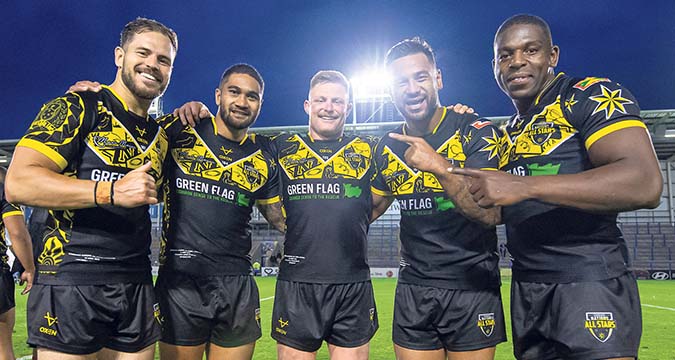 Talking Rugby League with League Express editor Martyn Sadler
After all the pre-game trials and tribulations, with All Stars coach Tim Sheens claiming he had spoken to almost 40 players in trying to put a team together, the England game against Combined Nations All Stars match turned out to be a highly competitive one, which must have satisfied
Talking Rugby League with League Express editor Martyn Sadler
After all the pre-game trials and tribulations, with All Stars coach Tim Sheens claiming he had spoken to almost 40 players in trying to put a team together, the England game against Combined Nations All Stars match turned out to be a highly competitive one, which must have satisfied What now for the All Stars?
 Talking Rugby League with League Express editor Martyn Sadler
After all the pre-game trials and tribulations, with All Stars coach Tim Sheens claiming he had spoken to almost 40 players in trying to put a team together, the England game against Combined Nations All Stars match turned out to be a highly competitive one, which must have satisfied
Talking Rugby League with League Express editor Martyn Sadler
After all the pre-game trials and tribulations, with All Stars coach Tim Sheens claiming he had spoken to almost 40 players in trying to put a team together, the England game against Combined Nations All Stars match turned out to be a highly competitive one, which must have satisfied 